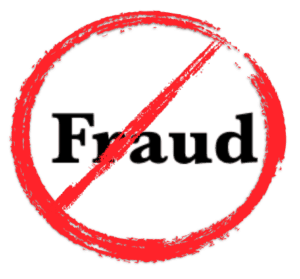The North American Securities Administrators Association (NASAA) has published a list of concerns and red flags regarding cryptocurrency investment offers. NASAA is the lobbying group that represents state and provincial securities regulators. Joseph Borg, the Director of the Alabama Securities Commission and current NASAA President stated;
“Investors should go beyond the headlines and hype to understand the risks associated with investments in cryptocurrencies, as well as cryptocurrency futures contracts and other financial products where these virtual currencies are linked in some way to the underlying investment.”
The caution from NASAA and Borg included established digital currencies such as Bitcoin and Ethereum but was also inclusive of the tokenized offerings that have brought initial coin offerings into prominence. NASAA said these digital assets are not insured, cannot be exchanged for other commodities and are subject to little or no regulation.
 A NASAA survey of state and provincial securities regulators indicated that 94% believe there is a “high risk of fraud” involving cryptocurrencies. Regulators also were unanimous in their view that more regulation is needed for cryptocurrency to provide greater investor protection.
A NASAA survey of state and provincial securities regulators indicated that 94% believe there is a “high risk of fraud” involving cryptocurrencies. Regulators also were unanimous in their view that more regulation is needed for cryptocurrency to provide greater investor protection.
“The recent wild price fluctuations and speculation in cryptocurrency-related investments can easily tempt unsuspecting investors to rush into an investment they may not fully understand,” said Borg. “Cryptocurrencies and investments tied to them are high-risk products with an unproven track record and high price volatility. Combined with a high risk of fraud, investing in cryptocurrencies is not for the faint of heart.”
Last month, NASAA identified Initial Coin Offerings (ICOs) and cryptocurrency-related investment products as emerging investor threats for 2018.
NASAA published a list of Crypto Concerns and Red Flags for Fraud, shared below.
Common Cryptocurrency Concerns
Some common concerns investors should consider before investing in any offering containing cryptocurrency include:
- Cryptocurrency is subject to minimal regulatory oversight, susceptible to cybersecurity breaches or hacks, and there may be no recourse should the cryptocurrency disappear.
- Cryptocurrency accounts are not insured by the Federal Deposit Insurance Corporation (FDIC), which insures bank deposits up to $250,000.
- The high volatility of cryptocurrency investments makes them unsuitable for most investors, especially those investing for long-term goals or retirement.
- Investors in cryptocurrency are highly reliant upon unregulated companies, including some that may lack appropriate internal controls and may be more susceptible to fraud and theft than regulated financial institutions.
- Investors will have to rely upon the strength of their own computer security systems, as well as security systems provided by third parties, to protect purchased cryptocurrencies from theft.
Common Red Flags of Fraud
 NASAA also reminds investors to keep watch for these common red flags of investment fraud:
NASAA also reminds investors to keep watch for these common red flags of investment fraud:
- “Guaranteed” high investment returns. There is no such thing as guaranteed investment returns, and there is no guarantee that the cryptocurrency will increase in value. Be wary of anyone who promises a high rate of return with little or no risk.
- Unsolicited offers. An unsolicited sales pitch may be part of a fraudulent investment scheme. Cryptocurrency investment opportunities are promoted aggressively through social media. Be very wary of an unsolicited communication—meaning you didn’t ask for it and don’t know the sender—about an investment opportunity.
- Sounds too good to be true. If the project sounds too good to be true, it probably is. Watch out for exaggerated claims about the project’s future success.
- Pressure to buy immediately. Take time to research an investment opportunity before handing over your money. Watch out for pressure to act fast or “get in on the ground floor” of a new tech trend.
- Unlicensed sellers. Many fraudulent investment schemes involve unlicensed individuals or unregistered firms. Check license and registration status with your state or provincial securities regulator.


